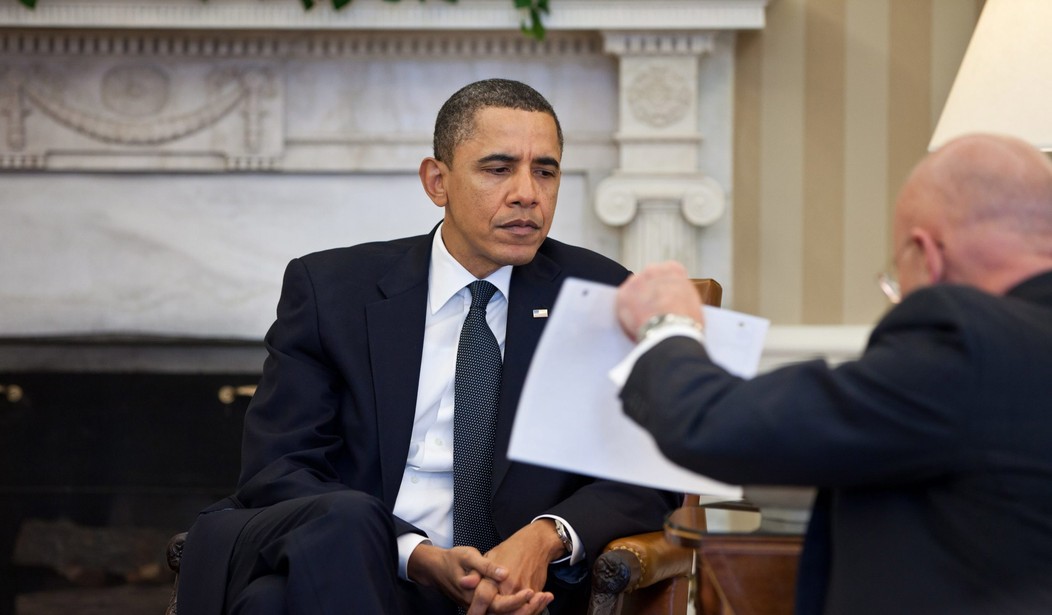There goes the narrative.
The picture painted by the media of the Obama administration’s reaction to Russian interference in the 2016 election blamed Republicans for refusing to cooperate with President Obama in combating the threat.
But the picture that is emerging in a massive report issued by a bipartisan investigation by the Senate Intelligence Committee is quite different. The Obama administration was “Frozen by ‘paralysis of analysis,'” in doing anything about the Russian meddling.
“After discovering the existence, if not the full scope, of Russia’s election interference efforts in late 2016, the Obama Administration struggled to determine the appropriate response,” committee Chairman Richard Burr, R-N.C., said in a statement Thursday. “Frozen by ‘paralysis of analysis,’ hamstrung by constraints both real and perceived, Obama officials debated courses of action without truly taking one.”
Committee Ranking Member Mark Warner, D-Va., said he hoped the panel’s findings would “resonate with lawmakers, national security experts and the American public.”
“There were many flaws with the U.S. response to the 2016 attack, but it’s worth noting that many of those were due to problems with our own system — problems that can and should be corrected,” Warner said.
Typical of Obama’s weakness and indecisiveness, administration officials apparently contacted the Russians asking them to please, pretty please, stop the meddling. It doesn’t appear that impressed the Russians very much.
“While high-level warnings were delivered to Russian officials, those warnings may or may not have tempered Moscow’s activity, and Russia continued disseminating stolen emails, conducting social media-based influence operations, and working to access state voting infrastructure through Election Day 2016,” the committee found.
The committee also found that the Obama administration was “constrained in its response by a number of external and internal concerns,” including the “highly politicized” environment and concern that public warnings could undermine confidence in the election. They also found that the administration’s decision to limit and delay information sharing about the foreign influence threat was a factor to the constraint.
That refusal to share what Obama had with Republicans was not a great confidence builder. Both Senator Mitch McConnell and the Trump campaign were willing to help, but they sensed a political trap — largely because Obama was asking them to trust him without much reciprocity.
As it turns out, the committee report identified that lack of trust as key to combating interference in the future:
“Information should also be shared with relevant private sector partners and state and local authorities,” they continued. “In the event that an active measures campaign is detected, the public should be informed as soon as possible with a clear and succinct statement of the threat.”
Both Burr and Warner said that they were concerned by the administration’s concern with sharing information with the public for fear of creating alarm.
“I am particularly concerned, however, that a legitimate fear raised by the Obama Administration – that warning the public of the Russian attack could backfire politically – is still present in our hyper-partisan environment,” Warner said.
I’m not sure how “legitimate” Obama’s concerns about going public with Russian interference actually were. After all, if the threat was as serious as they say — and after the election they couldn’t shut up about it — then the possibility of political “backfiring” should have been ignored for the sake of the country.
Instead, Obama froze and wrung his hands about the Russians.
There is no doubt about the threat — especially hacking state election systems. Time and again the electronic voting machines have shown themselves to be vulnerable, and yet the Trump administration and Republicans in Congress refuse to appropriate money to the states that would help protect the vote.
Yes, there is a worry about federal interference in state election machinery. But this is a crisis, as the bipartisan report makes clear. Something should be done and done swiftly or the integrity of our elections will come under real threat.










Join the conversation as a VIP Member